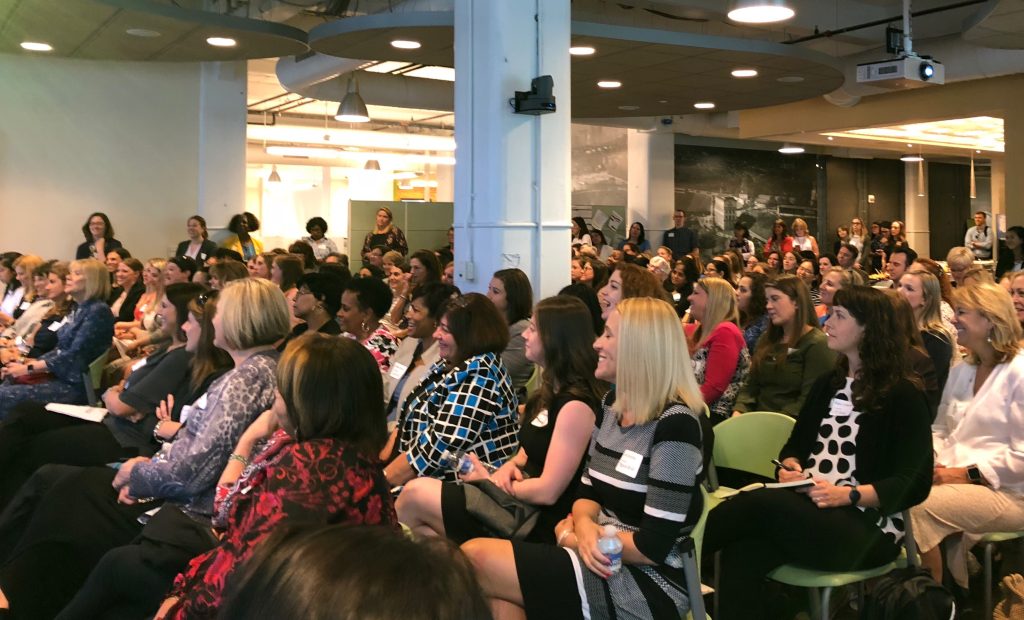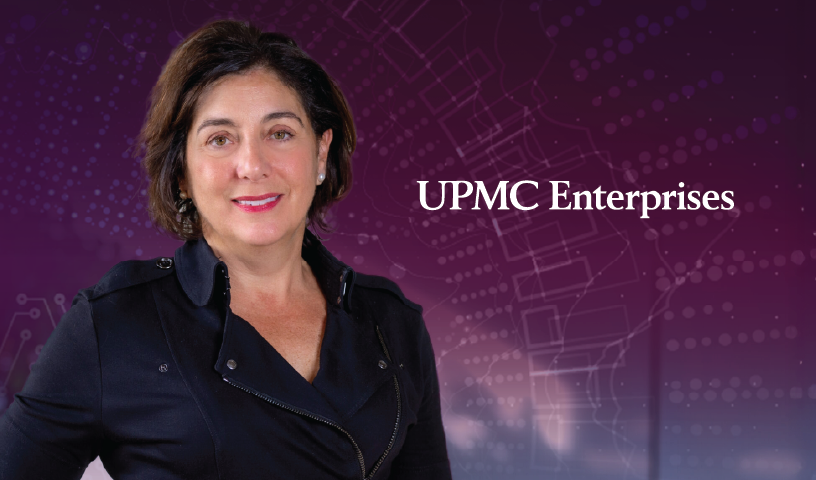
Jun 22, 2018
Women in Healthcare Leadership panel tackles mentorship, taking risks, and stepping into leadership roles
No one gets to a position of leadership in an organization alone. Leaders lean on mentors and sponsors along the way, they take risks, and are helped by their peers.
That’s why solid people skills are a key asset of any great leader, Diane Holder, President and CEO of UPMC Health Plan, said during a panel discussion featuring women leaders from across the health system.
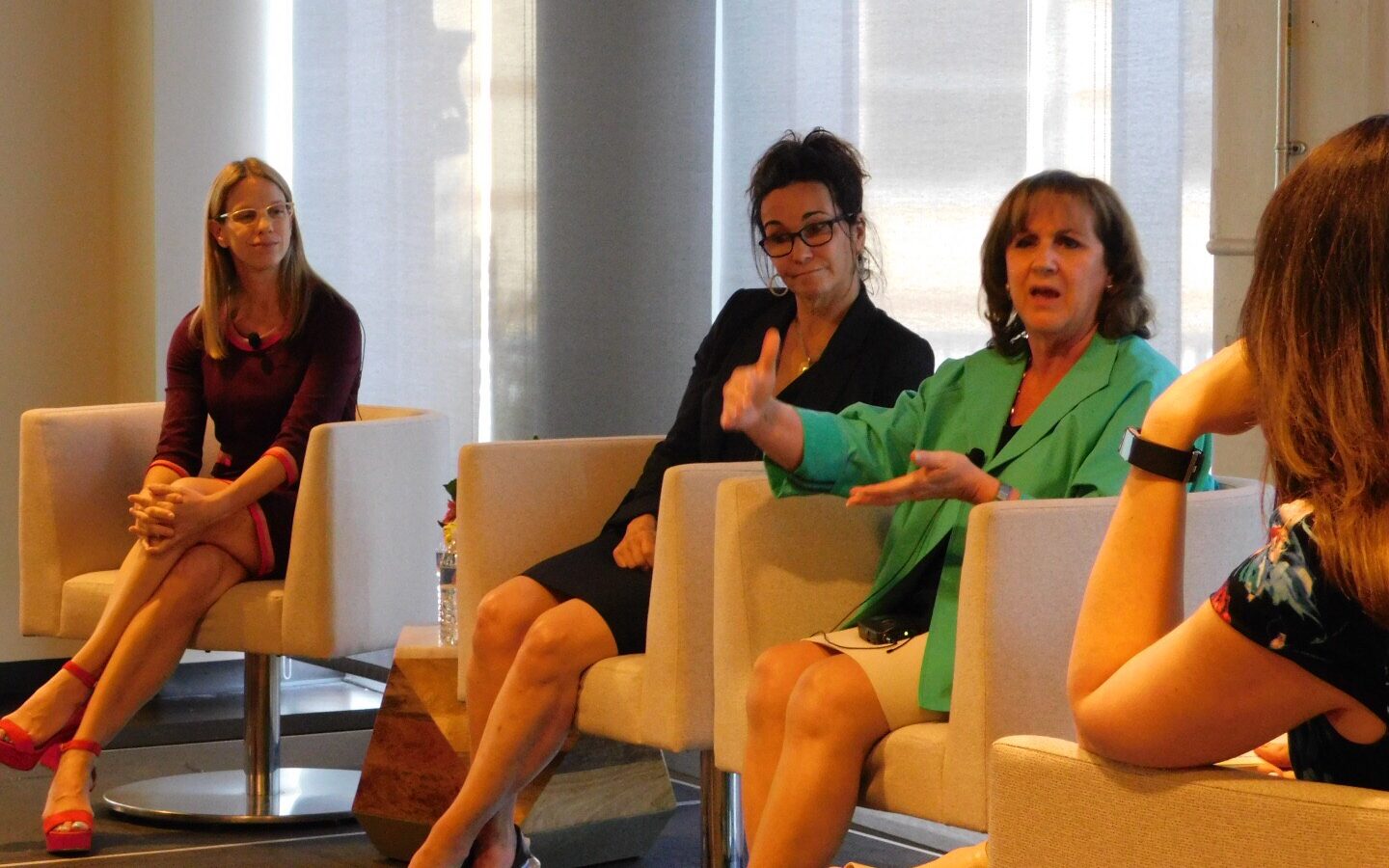
“You’re not going to do it alone,” Holder told an audience of nearly 200 people at UPMC Enterprises on June 14.
Holder was one of four panelists who participated in the “Women in Healthcare Leadership” discussion that was organized by FLIGHT – Female Leadership, Innovation, and Growth in Healthcare & Technology – a UPMC Enterprises group established to create mentorship and networking opportunities for women.
The other panelists were Jeanne Cunicelli, Executive Vice President at UPMC Enterprises; Ann Evans, Chief Financial Officer of UPMC’s Physician Services Division; and Alissa Meade, President and CEO of Curavi Health, a UPMC Enterprises portfolio company. The discussion was moderated by Katie Scott, Senior Director of Product Management at UPMC Enterprises.
The hour-long discussion touched on a variety of topics, including the importance of developing mentors, differences in leadership style, knowing how to step into positions of leadership, and the value of taking risks.
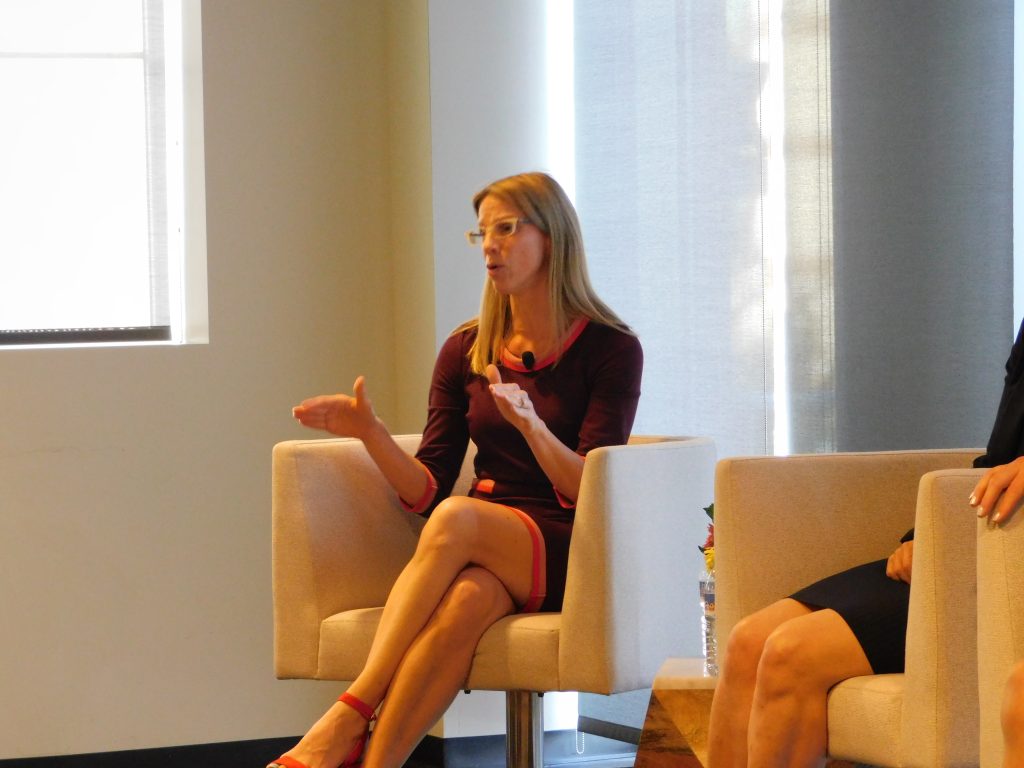
Mentorship is vital to success but it’s not enough to have one great mentor, Meade said. And mentors aren’t necessarily in a senior position – they also can be your co-workers who possess different skills.
“It’s a bullpen of people,” she said.
Holder said that while mentorship is a good place to start, younger workers also should seek out sponsors, who will go beyond teaching and advising by actively creating opportunities to advance careers.
Asked about different leadership styles, Cunicelli said it’s important to create an environment that is open and accepting for employees “to be human.”
“I’m big on the cultural piece of the team,” she said. “If you’re the leader that means you have to bring out the best in your people. So, I focus on bringing values and compassion for people.”
Leadership style often is influenced by who your bosses have been, Evans said.
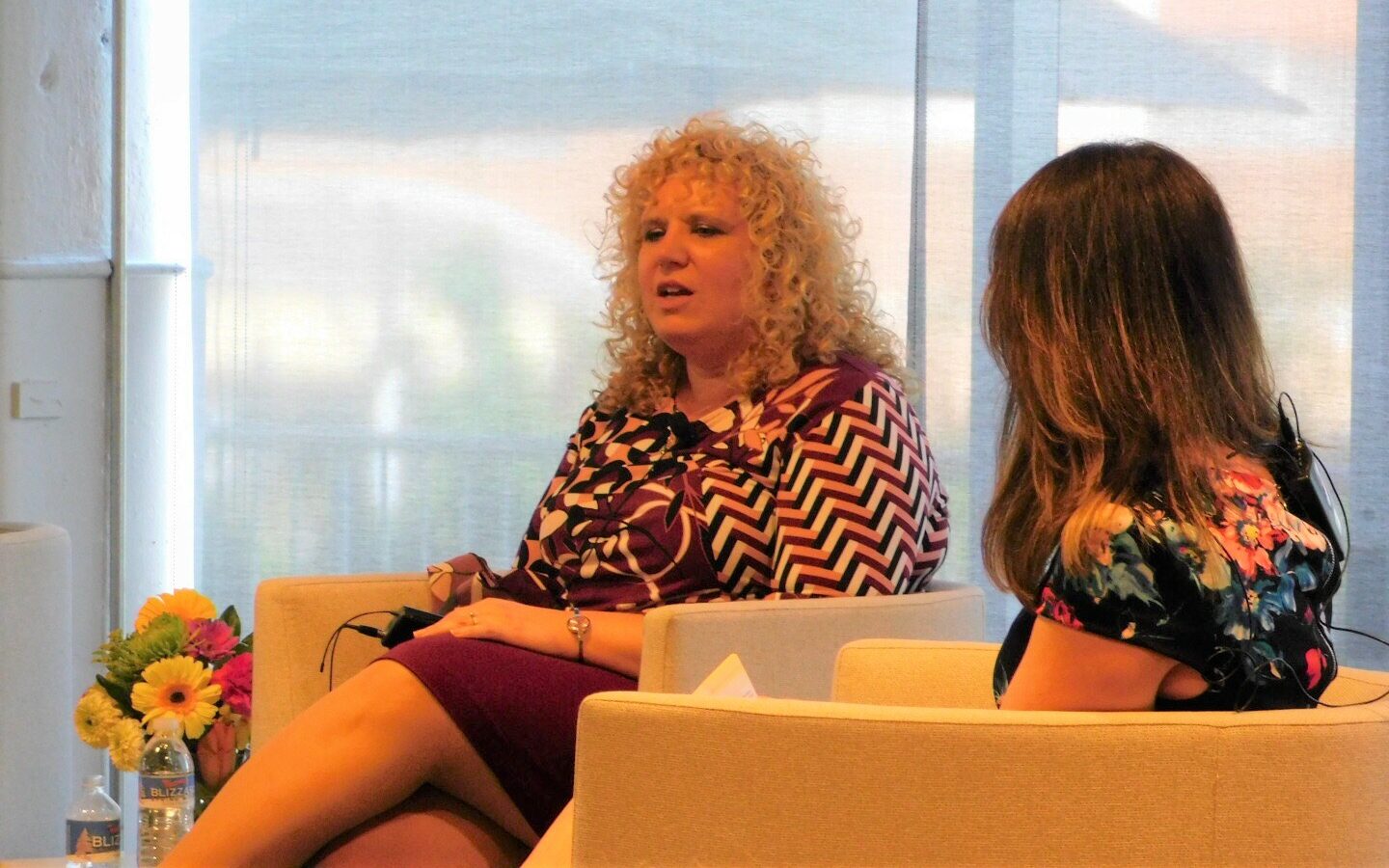
“The things I’ve liked I emulate and the things I haven’t liked I just don’t go there. It’s really simple,” Evans said.
But how does someone know when they are ready to step into a leadership role, Scott asked the panel.
Leadership is all about decision-making, and everyone makes decisions in their work that have an impact, even if small at first. Recognize that you’re preparing to make bigger decisions every day and develop those skills, Holder said.
“I don’t think leadership is some point you arrive at,” she said. “Leading is a process.”
Evans talked about making a mistake in her first role as a leader and learning to accept that mistakes happen, but that they need to be corrected quickly.
“It’s not that you made the mistake, but that you fixed it,” she said.
The panelists also talked about the value of tackling new challenges, such as starting a health insurance company from scratch as Holder did, or switching careers as both Meade and Cunicelli did.
“I pivoted in the mid to later stages of my career in an industry that almost no one leaves,” said Cunicelli, who stepped back from a Bay Area venture capital firm and returned to work when the right opportunity came along – leading a team at UPMC Enterprises that commercializes translational science initiatives.

“It’s really never too late,” she said.
And for Meade, who worked in other fields before entering health care, the question has always been, “What’s the worst thing that could happen?”
“You fall down and you pick yourself up and do it again,” she said. “Get out there and don’t be afraid to take risks.”
